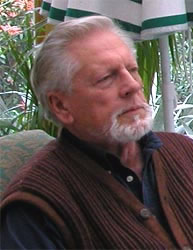The Fate of Physics
Year: 1997
To understand the nature of the fate that has befallen physics, it is necessary not only to relate the ?new physics? to its roots in the classical era, but to return to the theoretical roots of classical physics itself. At its very outset, science is confronted with a fundamental dilemma, which it is impossible for it, qua science, satisfactorily to resolve. It is this. In its investigation of the world, science places evidential emphasis overwhelmingly on experience: but not on experience as such. Rather on experience of the world, or the world as experienced. Now, my basic experience of the world, qua world, more especially the core material of physics, the world of interacting bodies in space. is acquired perceptually, via my sense organs. This experience is, of course, part of myself, the perceiver, a consequence of the stimulation of my sense organs by some source, or sources, in the external world. But these sources, ex hypothesi, are external to myself. How, then, can I know what they are? I cannot, in some magical fashion, transcend myself and make a direct comparison of them with the effect which, via my organs of sense, they have upon me. Clearly, if we live in a rational universe, there must be a causal connection between the external source (or noumenon) and the internal effect (or phenomenon). But what is the nature of this connection? R.G. Collingwood defines metaphysics as, " ... the science which deals with the presuppositions underlying ordinary science ..." (An Essay on Metaphysics, p.11); and if it is possible ever satisfactorily to answer the above question then it can only be by a rationally systematic analysis of such presuppositions - that is, by a process of metaphysical reasoning, so defined. But science - ordinary science - has never, as a matter of historical fact, been metaphysically grounded in this sense. In relation to this fundamental dilemma, what position, then, has it taken up?


